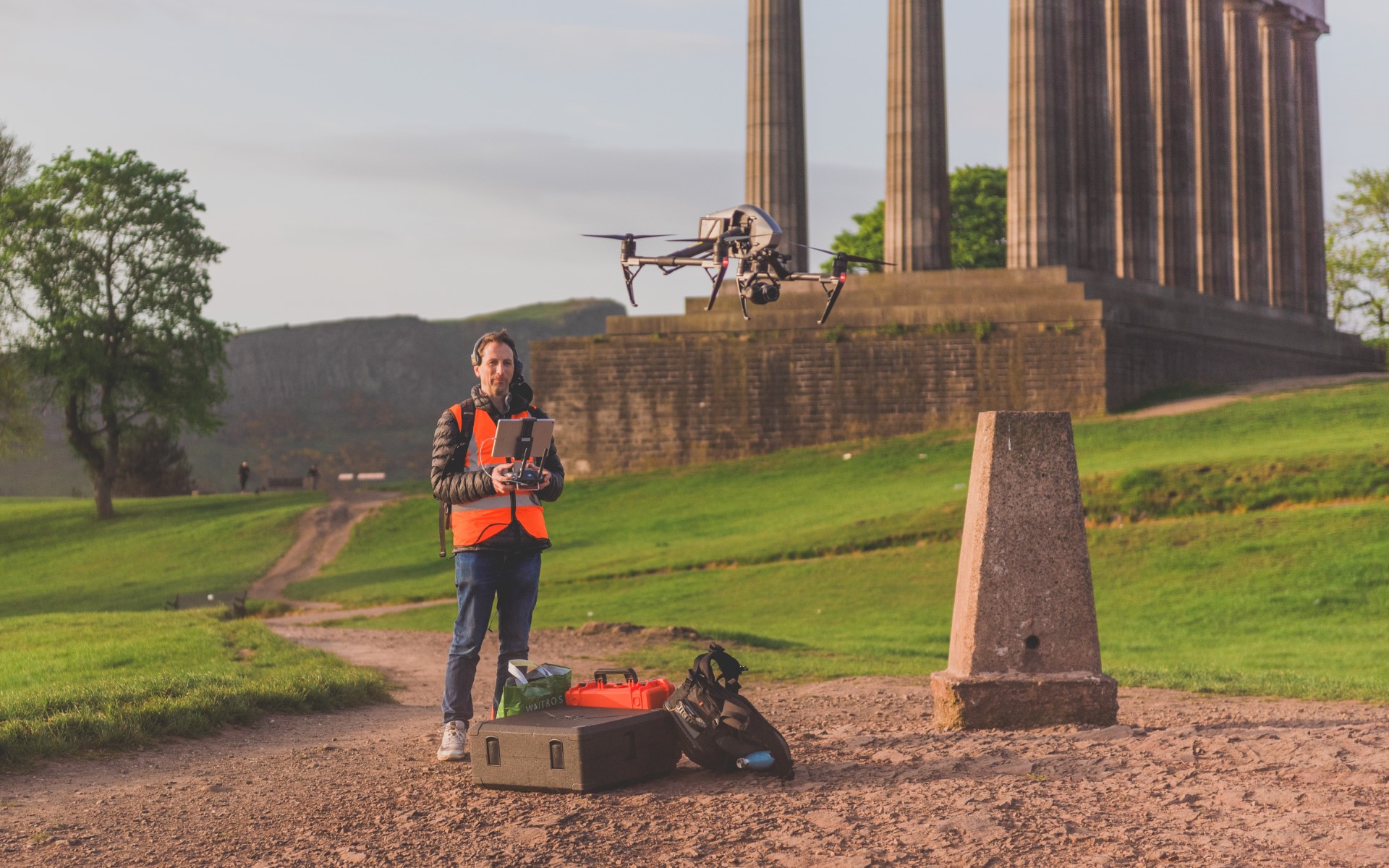This month's Featured Pro Member is Patrick Steel, Shooting AP & Drone Operator. Below he shares his career story with us:
Why did you decide the Shooting AP / Drone + Lighting Camera Operator route was where you wanted to work?
I started out in print and online journalism, shooting online content with DSLR cameras before skilling up with bigger cameras and gaining my GVC (or PfCO as it was back then) for flying drones. I now shoot mainly on the Sony FX6 and fly a DJI Inspire 2 and a DJI Mini 2.
I moved to Scotland five years ago and I’ve been working out of Edinburgh as a branded content producer/director, while also making creative documentaries as a self-shooting director, so have acquired a wide range of production and craft skills, but always with an emphasis on storytelling and the editorial side: I’m now looking to apply those skills to TV production as a Shooting AP.
How did you get into Shooting/Operating?
Some time ago I persuaded my employer at the time to let me train on the BBC’s Z1 course so that I could film online content. I also owned a Canon 7D, which initially I used for stills photography, but latterly used for creating short documentary films. This led to me towards making a mix of branded content and creative documentaries. As a branded content producer/director I’ve been lucky enough to work with some really talented DoPs, and learning from them has definitely improved my own shooting/operating skills.
On the drone side – when I first became a drone operator there weren’t that many of us around, but there’s now a healthy amount of competition, which can only be a good thing for productions generally. I’ve had an Operational Authorisation (or its equivalent) since 2018, and I try to bring a cinematic eye to my drone piloting to make the shots really stand out.
How did you learn to be an Editor? What skills do you need?I learned as an edit assistant on creative documentaries, and through a hands-on course run at the Apple Store in Regent Street. I learned to cut on Final Cut Pro, Premiere, and more recently DaVinci Resolve, which I also use for grading.
I think the key skill for an editor is an understanding of the story you want to tell. What is the narrative arc and what shots do you have to support that? After that I think it’s about finding the best/funniest/emotional takes to suit your story, and about rhythm and timing, knowing when to cut and when to hold a shot. The software is really just a tool to enable those things. Being an editor definitely makes me a better shooter and vice-versa.
What kinds of programmes do you work on?
In the current climate I’m taking on more branded content work, making spots for the likes of Sky Arts and Gamemaker, but I really enjoyed directing a VT for BBC Scotland’s A View From The Terrace a while back, which was about a grassroots football team looking to diversify the Scottish Professional Football League. In the past couple of years I’ve also worked as a producer/director on branded content spots for National Railway Museum, Glens Vodka, and Transport Scotland. I’d definitely like to do more TV work, and I think my skills would be well suited to a Shooting AP role.
What are the most challenging projects to work on?
Every project brings its own unique set of challenges – I think a large part of producing is being like water and finding your way through any obstacles to making sure what ends up on screen is the best it can be, while maintaining your sense of humour and (hopefully) your sanity.
One shoot I produced required an amateur footballer to do a sliding tackle on an astroturf pitch, missing the other player and sliding off screen. As it’s a move that can be quite taxing on the body we looked into various creative solutions to minimise the impact on the tackler and went in the end for watering that bit of the pitch to make it more slippy, and a cushioned tracksuit that our costume designer made specially. We got the shot in two takes and all was well, but it took a bit of creative thinking and some interesting tests to get there!
What would be your advice to someone trying to get into your area of expertise?
Beg, borrow, or steal a camera and start shooting with it. Be interested in other people. And read, watch and learn as much as you can, wherever you can. Get as much experience as you can on a set or as part of production - even if you’re not initially working in the role that you ultimately want, it’s a great way to meet people, build contacts, and learn about what’s going on.
What are you watching right now?
Andrew Tate: The Man Who Groomed the World on BBC iPlayer has been disturbing me. And I’m late to it, but Evacuation, on C4, about the evacuation of Kabul in 2021, is extraordinary TV. I’ve been enjoying The Bear on Disney+ also.
Why do you like using Talent Manager?
TM is a really useful resource for making connections and for understanding what production companies are out there and who they are looking for. I’ve found the networking events to be very helpful also.
In particular, what are the benefits to being a Pro member?
The analytics feature is very useful, as is the career development section. And I’m sure the increased visibility is also helpful in getting your CV in front of as many talent execs as possible.
Thanks to Patrick for taking the time to speak with us. Patrick is available for work from November 2023 and you can check out his website here too.


